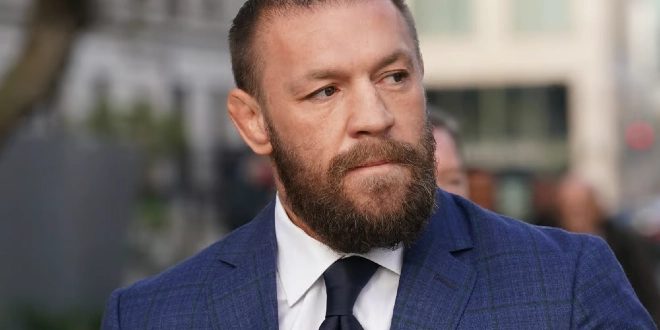During a St. Patrick’s Day visit to the White House, MMA fighter Conor McGregor voiced strong criticism of Ireland’s immigration policies. He claimed that the Irish government had “abandoned the voices of the people of Ireland,” expressing concerns that the nation was on the verge of losing its cultural identity. McGregor emphasized the need for America to be aware of what he described as a “travesty” occurring in Ireland.
Taoiseach Micheál Martin and Tánaiste Simon Harris swiftly addressed McGregor’s statements. Martin stated that McGregor’s remarks were incorrect and did not reflect the spirit of St. Patrick’s Day or the views of the Irish populace. Similarly, Harris emphasized that McGregor was in the U.S. in a personal capacity and did not represent Ireland or its citizens, lacking any official mandate to do so.
At the White House, Press Secretary Karoline Leavitt introduced McGregor, noting that they couldn’t think of a better guest for St. Patrick’s Day. McGregor was scheduled to meet with President Donald Trump and other administration officials later in the day.
McGregor’s visit and comments come in the context of his recent legal challenges. Four months prior, he was found liable in a civil case involving sexual assault allegations, resulting in a €250,000 fine. This backdrop has intensified reactions to his current political statements.
Rachel Morrogh, Chief Executive of the Dublin Rape Crisis Centre, expressed shock over McGregor’s White House appearance, especially given the recent civil judgment against him. She emphasized the importance of standing by survivors of sexual violence and condemned any actions that might normalize such behavior.
Conor McGregor’s recent visit to the White House has ignited debates concerning Ireland’s immigration policies and the representation of Irish views on international platforms. While McGregor asserts his intention to highlight issues facing Ireland, key Irish political figures and advocacy groups have distanced themselves from his remarks, underscoring that he does not speak on behalf of the Irish government or its people.
 The Daily Star Ireland
The Daily Star Ireland

